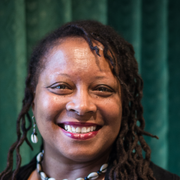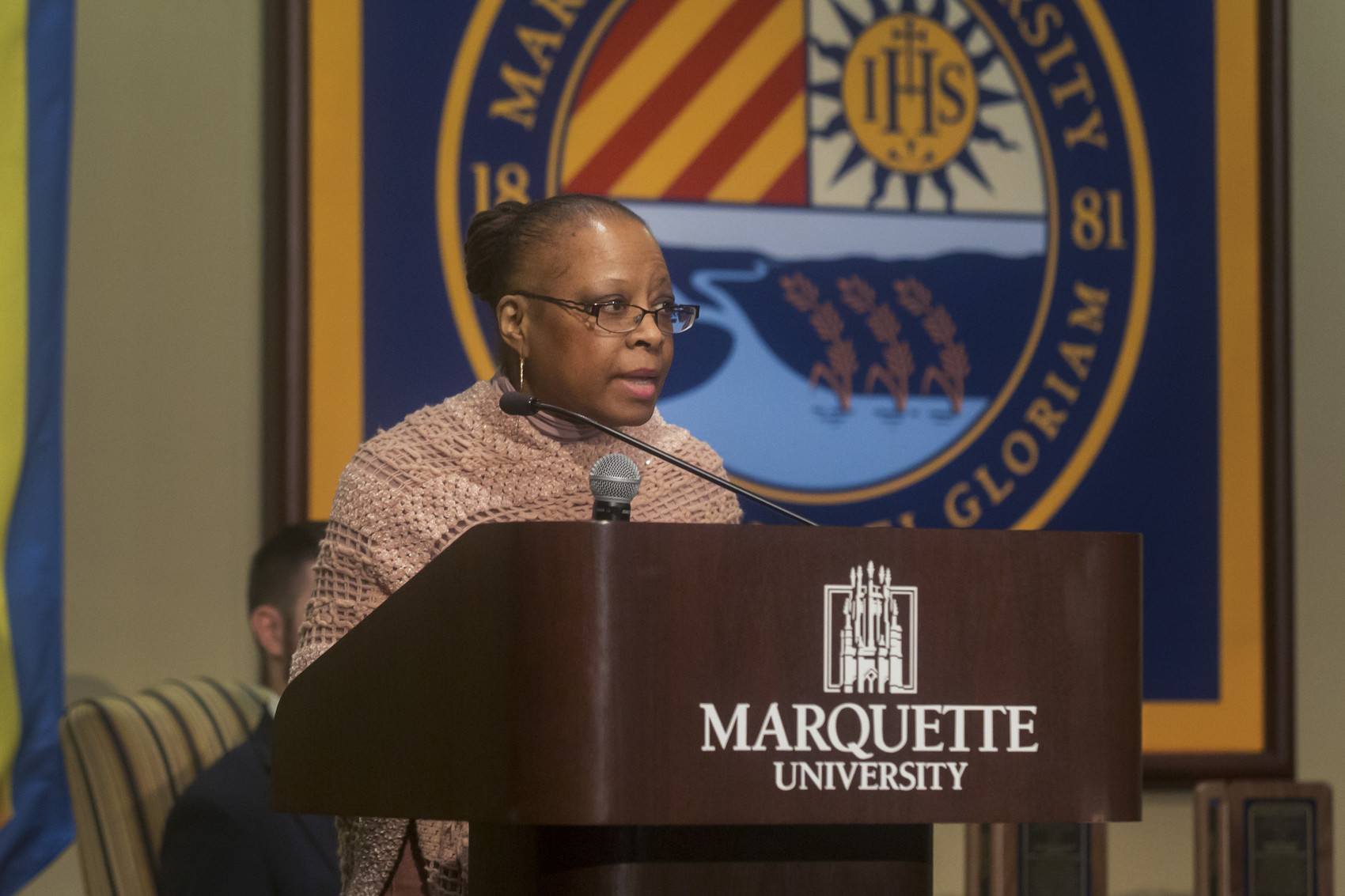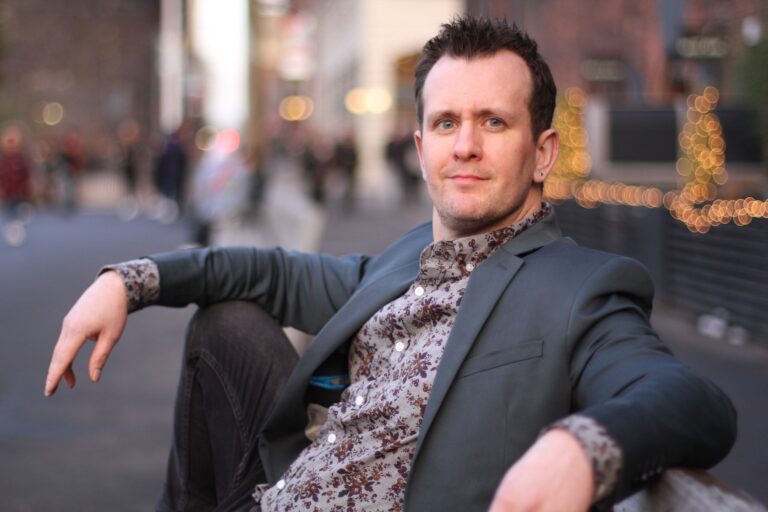Each year the Office of the President recognizes one staff member with the Diversity and Inclusion Staff Award for demonstrating exemplary leadership that manifests the ideals of diversity, equity and inclusion into practical action, as well as demonstrating and supporting the Ignatian ideal of care for others.

The 2022 recipient of the Diversity and Inclusion Staff Award is Sheena Carey, for her exemplary efforts toward raising awareness and consciousness about DEI at Marquette.
In addition to her work as an instructor, Carey heads the Diederich College of Communication’s DEI plan, supports inclusive classroom environments as a teaching and learning fellow, and serves as the voice of the “Our Roots Say That We Are Sisters” podcast.
Carey has been an active member of the University Committee on Equity and Inclusion since its inception, contributed to the 2019 cultural audit of campus spaces, helped pilot and provided insights in the development of the Making Marquette Inclusive discussion series in the 2020-21 academic year, and co-founded the Womxn of Color Employee Resource Group.
“As a human being in this world, it more than feels right — it is right,” Carey says. “It is what I believe. It is who I am. It is my mission to work with and interact with others, so they feel the rightness of inclusion for all and to share with others lessons learned about justice at my mother’s knees.”
Here in a Q&A, Carey discusses her professional background, the work of the University Committee on Equity and Inclusion, how Marquette has grown over her 30-plus years here, and more.
What has led you to your involvement with DEI efforts at Marquette?
I am a graduate of Marquette University’s (former) College of Journalism with a double major in journalism and interpersonal communication, and a graduate of Marquette University’s Master of Arts in Communication program with an emphasis on organizational communication.
I have worked for Marquette for 33 years, often while working elsewhere. My professional background includes corporate communication, education and information services, consumer relations, public affairs, marketing and running my own communication consulting business.
I started in DEI work initially by working in training and development for a local utility company where I helped develop and facilitate diversity training. Using that background, in addition to other work with the public and nonprofit sectors, I naturally moved into addressing the issue of equity here at Marquette and in the Diederich College of Communication.
I did so by being part of the facilitation cohort for Making Marquette Inclusive, serving as a Center for Teaching and Learning fellow on inclusion, and helping to implement the Diederich College of Communication’s Justice, Equity, Diversity and Inclusion plan.
All these endeavors grew out of my experience teaching intercultural and cross-cultural communication for Marquette and the University of Wisconsin.
What work has the University Committee on Equity and Inclusion been able to implement that you are proud of?
The University Committee on Equity and Inclusion is doing good work — specifically hosting forums to get conversations started around equity and inclusion, cultural audits of facilities, cultural program mapping and serving as the largest cohort of MMI facilitators.
What is the greatest challenge underrepresented groups face when it comes to higher education?
The greatest challenge marginalized groups face in higher education is access — in myriad forms — getting here, remaining here, feeling included and feeling valued here.
Throughout your 30-plus years at Marquette, how has the university grown regarding DEI?
We have made concerted efforts to get beyond the talking stage and moving toward action in redressing historic and current problems.
Where does Marquette still have room to grow?
I would like the future of DEI at Marquette to be that it is no longer something we talk about or do, but something that we are. I want it to be embedded in decisions, choices and actions at all levels and internalized in us all.



